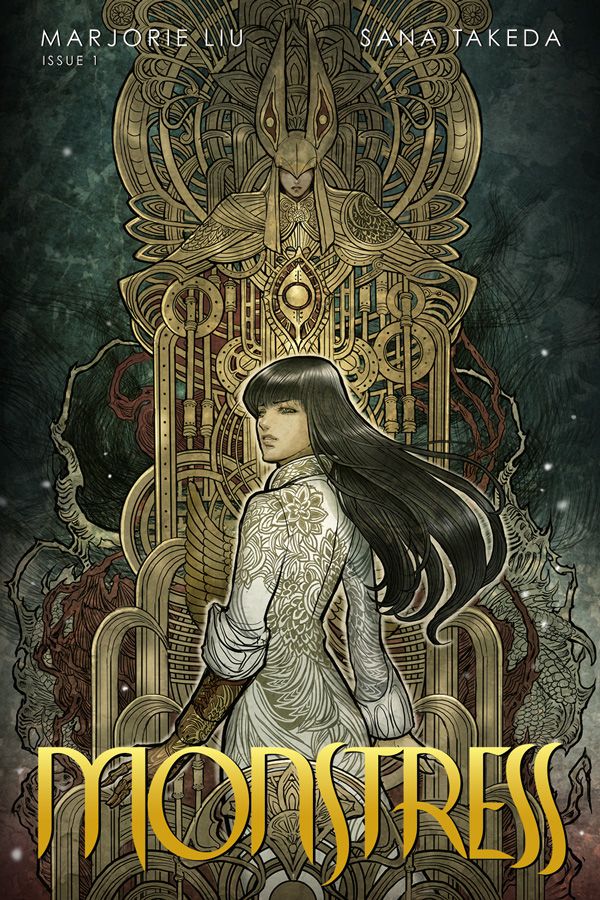With an expansive scope to match its oversized page count, "Monstress" is a whole lot of epic fantasy to take in. Marjorie Liu and Sana Takeda's world building is excellent and immersive; different histories, conflicts, myths and traditions are all hinted at just off the page, and Takeda's manga-meets-art-deco-and-then-eats-it aesthetic is often breathtaking. However, this is a particularly dense first issue, and the main character Maika doesn't exactly invite the reader in. For its visual fireworks and deep world building, "Monstress" #1 will win an audience -- but only readers who are up for the challenge.
RELATED: Liu & Takeda's "Monstress" is About Every Moment a Woman Says "Enough"
Much as I liked it, "Monstress" is by no means an easy or inviting first issue. It's dense and dark, and the reader has to pay close attention to the dialogue in order to grasp everything Liu throws out. Aside from a scene of obvious explication near the end, most of the world building is done through references in the characters' dialogue: "This is different. Like Constantine" or "Arrogant nuns... thinking they rule us..." This is the sort of skillful integration that's prized in fantasy novels, as it avoids the dreaded info dump, but it does require the reader to knit things together. The comic format also asks the reader to decode the visuals, so putting it all together does take extra effort.
Those visuals are well worth the work, though. Takeda's art is so intriguing. On the one hand, she leans into manga influences with chibi characters like Kippa and monster transformations like Yvette Lo Lim's. When the characters are in action, she utilizes the lean, readable line work manga is known for. However, in backgrounds or in conversation scenes, she switches tactics with dense, ornate designs that pull inspiration from imperial China, art deco and steampunk. The result is a unique, sometimes curious aesthetic I really enjoyed revisiting; fans of "silkpunk" prose will love seeing that idea visualized. There are places where the contrast in style can feel incongruous, and there are definitely some pages that feel rushed or sketchy -- perhaps unsurprising, since Takeda handled pencils, inks and colors -- but her showstopper scenes totally took my breath away. The looming, whirled Monstra with its severe eyes was just so cool.
As for the script, Liu packs tons of information in here. I'm a sucker for a deep-dive approach to a fantasy world, so I loved how dense and full of strange words like Cumaea, Arcana and lilium this story was. That said, readers who prefer their fantasy with less intense world building probably won't take to "Monstress." It is very much of its genre.
The protagonist, Maika Halfwolf, is something of a cypher. Determined and reticent, Maika is clearly a survivor. She's stern and single-minded, and the reader doesn't see her engage with any of the other characters outside of a conflict or goal. Even with Tuya, she argues and strives. Given her backstory, this demeanor makes sense, but -- as a result -- she doesn't share too much with the reader, either. That means neither the world nor the protagonist do much to invite you in.
However, the mystery around Maika did draw me in. Liu keeps the reader curious about what she's intending to do, what exactly Tuya thinks she's "mad" for attempting. Her competence adds to the mystery, because it convinces the readers to believe she'll accomplish whatever the mystery task is.
All told, "Monstress" #1 contains one heck of a dark fantasy world. With its impressive range of female representation, truly unique aesthetic and promising conflict, this could be the start of an awesome new series.

